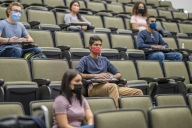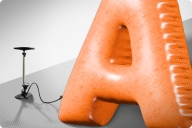You have /5 articles left.
Sign up for a free account or log in.
A student at San Jose State University says he routinely placed the answers to his computer science homework online, provoking a debate with his professor about whether the practice constituted cheating or even copyright violations.
While the copyright question remains unanswered by San Jose officials, the university’s office of judicial affairs has affirmed that Kyle Brady didn’t cheat by posting answers online after assignments were due. That’s something of a victory for Brady, who says the back-and-forth with his professor over the issue got quite heated.
The class in question, “Data Structures and Algorithms,” involved several assignments for which students were asked to write computer code. Brady says he posted the code online as a form of self promotion, hoping future employers might be interested in seeing his work. While he didn’t expect a backlash, Brady says he fielded several harshly worded e-mails on the matter from Michael Beeson, a professor of computer science. Beeson argued that posting the code was tantamount to sharing answers with other students, even though Brady says he never posted anything prior to the due date.
“If this was a forum it would have been a flame war,” Brady said. “He came at me guns blazing. There was no discussion. He was using loaded words, throwing in things like ‘cheating’ and ‘failing’ and talking about how he was going to file an official complaint … They were very, I don’t know, very testosterone-filled [messages].”
Beeson, whose voicemail indicates he's out of the office for the summer, did not respond to interview requests Friday or Monday.
Brady said he’d rather not share the e-mails, but noted that Beeson’s central argument was that posting the information online violated student conduct codes of academic honesty. That charge prompted Brady to contact Kenneth Louden, chair of the department of computer science, who forwarded the case along to the university’s Judicial affairs office.
“I have now heard from Debra Griffith, Judicial Affairs Officer of SJSU, and she agrees that what you have done does not in any way constitute a violation of the University Academic Integrity Policy, and that Dr. Beeson cannot claim otherwise,” Louden wrote in an e-mail, which Brady posted on his blog.
Louden did not respond to interview requests.
Copyright Claims Disputed
In addition to making claims about academic honesty violations, Beeson hinted that there might be a copyright case as well, given the fact that the code was derived from assignments he’d written, according to Brady.
“[He argued] the purpose [of the code] was for his class, under his instruction, therefore he had at least partial claim to it,” Brady said. “That wasn’t really the whole point, but he was using that as a tool to try and scare me.”
It would be difficult to make the case that an undergraduate posting code online after an assignment was due constituted either cheating or copyright violations, according to David Farber, a fellow at the Association for Computing Machinery, an educational and scientific computing society. While it’s routine to ask graduate students who are working on grants to not publish their work, Farber said he knew of no precedent where an institution asked unpaid undergraduates to never release work they’d done for a course.
“No school I know of would play that,” said Farber, a professor of computer science and public policy at Carnegie Mellon University. “And I think if they did they’d have a revolution on their hands.”








